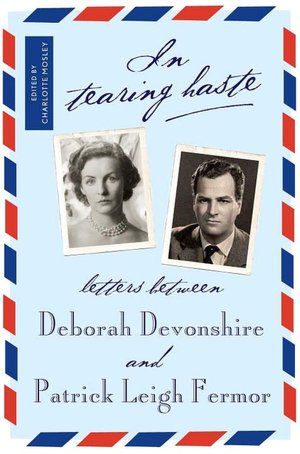
Job and His Wife, Georges de la Tour
Discussion Questions:
1. What is the basic problem explored in Job? Do we get an answer? Are we satisfied with it?
2. What did you think of the prologue in which Satan gets permission to severely test Job? Does this really happen or is it simply a literary device? Is it a parable?
3. Why is God so hard on Job's three friends? What was their basic argument to Job? What's the problem with it? Why isn't Elihu included in the rebuke? What is the proper response to another's suffering?
4. Most of us blame God when things go badly in our lives; is this justified? Is there a difference between discipline and punishment? Was Job being disciplined or punished? Are there different causes of and types of suffering?
5. Job lived before the time of Christ. Is his suffering a type of Christ's own suffering? How does Job's suffering differ from ours? Are his problems relevant to us? Are we better off than he was? Did you notice some verses where he cries out for a redeemer or mediator between him and God? (Job 9:32-35, 14:16-17, 19:25-27, 23:1-7, 33:23-25)
6. What about Job's wife?
7. Is it ok to get angry at God? Was Job self-righteous or in the right? If he was in error, what was his error? Should we ever question God? Think about Abraham, Moses, David. Have you ever noticed what great arguers and debaters the Jews are?
8. The Book of Job is an interesting example of dramatic irony in literature. The reader knows all along why these things are happening to Job yet is forced to listen to his friends' fruitless arguments. Then God speaks and it seems like the tables are turned even on the reader. At the end of it all, do we really know what God has been up to?
9. Does Job's restoration satisfy us? Was he satisfied? How about his wife?
Thank you to Nancy for these questions!
Vicki has one, too:
Did anyone notice a similarity between Job and Odysseus? It seems as if God treats Job very much the same way as the gods do Odysseus. The Book of Job is very early on in the process of Revelation. Is it unremarkable, then, that both stories should have a similar understanding of the relationship between God and man? In understanding this relationship, which parts come naturally, and which thru Revelation? How do the two stories differ?
Further Reading:
The Only Problem - Muriel Spark
1. What is the basic problem explored in Job? Do we get an answer? Are we satisfied with it?
2. What did you think of the prologue in which Satan gets permission to severely test Job? Does this really happen or is it simply a literary device? Is it a parable?
3. Why is God so hard on Job's three friends? What was their basic argument to Job? What's the problem with it? Why isn't Elihu included in the rebuke? What is the proper response to another's suffering?
4. Most of us blame God when things go badly in our lives; is this justified? Is there a difference between discipline and punishment? Was Job being disciplined or punished? Are there different causes of and types of suffering?
5. Job lived before the time of Christ. Is his suffering a type of Christ's own suffering? How does Job's suffering differ from ours? Are his problems relevant to us? Are we better off than he was? Did you notice some verses where he cries out for a redeemer or mediator between him and God? (Job 9:32-35, 14:16-17, 19:25-27, 23:1-7, 33:23-25)
6. What about Job's wife?
7. Is it ok to get angry at God? Was Job self-righteous or in the right? If he was in error, what was his error? Should we ever question God? Think about Abraham, Moses, David. Have you ever noticed what great arguers and debaters the Jews are?
8. The Book of Job is an interesting example of dramatic irony in literature. The reader knows all along why these things are happening to Job yet is forced to listen to his friends' fruitless arguments. Then God speaks and it seems like the tables are turned even on the reader. At the end of it all, do we really know what God has been up to?
9. Does Job's restoration satisfy us? Was he satisfied? How about his wife?
Thank you to Nancy for these questions!
Vicki has one, too:
Did anyone notice a similarity between Job and Odysseus? It seems as if God treats Job very much the same way as the gods do Odysseus. The Book of Job is very early on in the process of Revelation. Is it unremarkable, then, that both stories should have a similar understanding of the relationship between God and man? In understanding this relationship, which parts come naturally, and which thru Revelation? How do the two stories differ?
Further Reading:
The Only Problem - Muriel Spark
